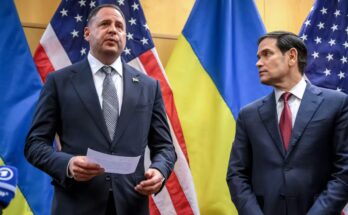It was during my years as a university student, in the 1970s, that I don’t know exactly why I first had an interest in the figure of Leon Trotsky and decided to know something about the character. But that research attempt would soon collide with what I could classify as programmed ignorance: I remember that in the Cuban libraries within my reach I only found two books on Trotsky. Prepared by groups of authors from the Academy of Sciences or History of the USSR, both volumes offered the same consolidated consideration of the former war commissar and did so with a vehemence triggered by titles such as Trotsky, the false prophet and, if I remember correctly, Trotsky, the traitor.
That single version referring to the character in question made it impossible to know, compare and attempt to establish a truth. However, the important thing is that my conflict was not a specific issue. On the contrary, it constituted an entire information policy, a partial management of the truth that his book talks about The Empire (Anagrama, 1994) the Pole Ryszard Kapuscinski would comment: “As the Stalinist-Brezhnevian era recedes, our knowledge of that system and that country increases in geometric progression. Now not only every year and every month they provide us with new materials and information, but every week and every day!” And then he concluded: “Ninety percent, if not more, of the materials available today did not see the light of day just a few years ago.”
What then was the true history of Soviet society? What had already been published or what could be written with new information? All post-Soviet literature, such as that written by the Georgian Nino Haratischwili or the Croatian Robert Perišić, changed many previously established perceptions. However, one of the most devastating demonstrations that the truth had been cunningly perverted, that ignorance had been programmed, came from reading the collection of documents extracted from the Moscow archives in the early 1990s, published under the title Spain has betrayed. Stalin and the civil war (Spanish version of Planeta, 2002) a book which, thanks to the information recovered, offered a different and more credible version (through documents) of the activity of the Soviet advisors within the republican alignment and of Stalin’s perverse policy regarding the war and the Republic.
In his most recent and, as always, provocative essay, link (2024), the Israeli sociologist Yuval Noah Harari states that if the information we receive is an attempt to represent reality, it is assumed that as the amount of available information increases, as has happened in recent years thanks to the digitalization of societies, this condition should provide us with more truthful knowledge of the world. The big problem, however, according to Harari, is that “even errors, lies, fantasies and fictions are information”, that is, that “information is not always the truth”. And he concludes that “throughout history it has been common for information networks to privilege order over truth.” In two words: the strong powers have manipulated and are manipulating information.
We all know that information management has historically been a field frequently visited by the propaganda interests of politicians. It is no coincidence that the philosopher Hannah Arendt, obsessed by this theme, began her 1974 essay Truth and lies in politics warning: “No one has ever doubted that truth and politics do not go together very well, and no one, as far as I know, has placed truthfulness among the political virtues. Lying has always been seen as a necessary and justifiable tool for the activities not only of politicians and demagogues but also of statesmen.”
What happens in the world today with the manipulation of reality does not only imply the increasingly recurring programming of ignorance and perversion of the truth: it is the manifestation of the rise of totalitarianisms that create the perception of reality according to one’s needs, interests or whims. Powers that before our eyes shamelessly dedicate themselves to supplanting visible truths with gross lies (as Stalin and Hitler did in their time) and that, with these strategies, fuel populist discourses that promise, as is classic in this matter, the recovery of past greatness and the establishment of order. The treatment by global right-wing politicians of an issue as critical and real as that of migration is a painful example of this type of manipulation of the truth, this time attempting to alter the essence of the motivations of the migration phenomenon.
Other cases of hoaxes repeated ad nauseam would be that of the denazification of Ukraine that Putin supported for his invasion or that of the fight against drug trafficking that Trump supports while bombing boats in the Caribbean Sea where he has placed a fleet that includes nuclear submarines. And Putin and Trump, like other powerful people of the past, play with the card of knowing that many times, the more bombastic the lie, if it is repeated and supported, it can be accepted as truth.
It would be useful to remember that in classical antiquity truth was understood as the discovery of things. Centuries later, the Enlightenment considered it a necessity to achieve freedom. Perhaps we can also guarantee that truth is something that should accurately represent some aspects of reality and this would be why its search is a universal project. But, in our turbulent times, where have the need for revelatory knowledge and the virtue of truth as a gateway to freedom gone?
I could not confirm the source, but on my machine I found this quote, so revealing that I dare to replicate it, well, whoever it comes from, which assures It is true: “Before people lied where citizens didn’t know, because they couldn’t know; today they lie to citizens where, in principle, they can know everything.” In my “before” university, in my historical context, it was impossible to know. But in our time, will you let us know?
Such is the current state of information manipulation, the difficulty of finding certainty amidst the most shameless use of lies both by political elites and in the hands of digital platform managers who willingly use social network spaces to spread hoaxes, that the existence of something called post-truth flourishing in the space that truth should occupy has been established. That post-truth which, as we know, reorganises, manipulates and distorts facts with the desire to impose its opinion on public opinion. particular REAL.
In this quagmire of truth states, at least one thing seems to be true: programmed ignorance is today a suprasystemic and universal political reality, and it is increasingly difficult for us to know where to find the truth. And decide if someone is lying to us. Or is everyone lying?


